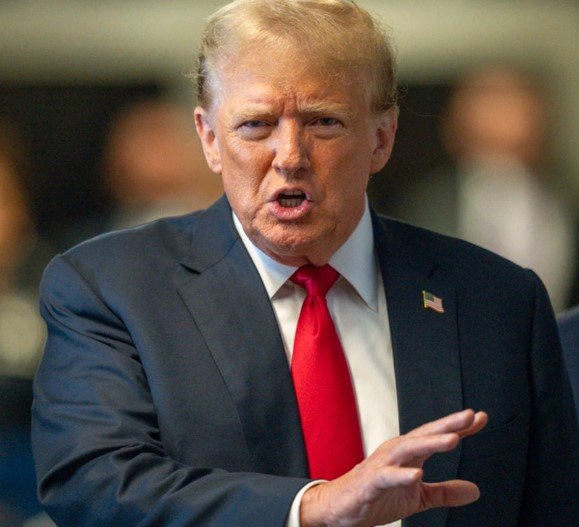Trump’s Legal Battle in Georgia Stalled as Presidential Role Adds New Hurdles
As Donald J. Trump prepares to enter the White House once again, the state-level election interference case in Georgia may be one of the few legal challenges still standing. But his new role could introduce delays that might stretch into years, leaving some wondering if he will ever truly face trial in Georgia.
Federal criminal cases against Mr. Trump, such as those concerning classified documents and election interference, have all but collapsed in light of his recent election win. This victory may prevent him from ever appearing in an Atlanta courtroom during his term as president. Georgia’s case, led by District Attorney Fani T. Willis, remains active, though Trump’s defense team is working to either pause or entirely dismiss it, raising questions about how far this case will proceed.
Federal Cases Disintegrate as Trump Heads Back to Washington
In Manhattan, Mr. Trump was recently convicted of falsifying business records related to hush money payments, marking a significant legal blow. Despite this, his return to the presidency has shifted the dynamics of his federal cases. Jack Smith, the special counsel who initially charged Trump with election interference, moved to pause proceedings just days after Trump’s election win, likely due to Justice Department policies preventing the prosecution of sitting presidents.
With a similar request expected soon regarding the classified documents case, these delays suggest that federal charges might be indefinitely sidelined. The Justice Department’s stance on prosecuting a sitting president could effectively shield Trump, allowing him to maintain focus on his term.

Meanwhile, the Georgia case appears comparatively isolated in its persistence. Legal experts believe this state-level case might be harder to sideline, though Trump’s defense is already exploring possible arguments under federal constitutional grounds, particularly citing the Supremacy Clause, which could raise the federal president’s duties above state-level prosecutions.
Georgia Racketeering Case: What’s at Stake?
The charges brought in Georgia differ significantly from the federal ones. Here, Trump, along with 18 co-defendants, stands accused of attempting to overturn the 2020 election results by organizing fake electors, accessing election data from rural Georgia counties, and engaging in other activities alleged to be illegal. This case, based on racketeering charges, casts a wide net, ensnaring figures like Rudy Giuliani, Trump’s former lawyer, and Mark Meadows, his former White House chief of staff.
The case’s complexity has already led to some developments. Of the 19 individuals initially charged, four have opted to plead guilty and cooperate with the prosecution. The rest, including Trump, have pleaded not guilty. While these guilty pleas from some co-defendants could strengthen the state’s case, Trump’s role as president introduces unprecedented complications.
Trump’s lawyers argue that his presidential responsibilities could justify delaying any potential trial. They claim a sitting president can’t feasibly commit months to a courtroom battle, a point they are expected to make with vigor.
Legal Questions Cloud Fani Willis’s Role in the Case
As if the situation were not complex enough, Fani Willis’s position as district attorney in the Georgia case is itself in question. Her involvement became controversial following revelations that she had a romantic relationship with a lawyer outside her office who was involved in the prosecution. While a judge ruled in her favor, allowing her to remain on the case, the decision is under appeal.
Lawyers for Trump and his co-defendants are scheduled to appear before an appeals court next month to argue for her disqualification. Should they succeed, a new district attorney might take over, potentially causing even further delays. If Ms. Willis is allowed to remain, however, Trump’s legal team is ready to push for further postponement on grounds that the trial would impede his duties as president. It’s yet another hurdle that could stall progress in the Georgia case for months.
The argument for delaying the trial rests not only on Trump’s presidential obligations but also on federal law. Trump’s lead lawyer, Steve Sadow, has indicated he’ll invoke the Constitution’s Supremacy Clause, which asserts the dominance of federal authority over state law. His position may be that requiring the president to attend a state-level trial infringes on federal duties and thus is unconstitutional.
The Long Road to Trial: What Comes Next?
For Trump, the legal entanglement in Georgia is anything but straightforward, and it’s one that could stay with him throughout his term. Several important steps still need to play out:
- The appeals court’s decision on Ms. Willis’s potential disqualification, expected to take several months, is one hurdle.
- If Willis remains, Trump’s team will likely renew efforts to delay or dismiss the trial on federal constitutional grounds.
- Additional co-defendants could choose to plead guilty, potentially strengthening the prosecution’s hand.
With all of this in flux, no clear path forward is apparent. At least for now, Trump’s case in Georgia could survive—but it might be a while before it has its day in court.
